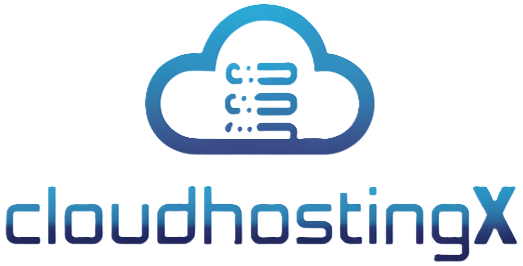In today’s digital landscape, businesses and individuals alike are constantly seeking efficient, scalable, and cost-effective hosting solutions. Enter cloud hosting – a revolutionary approach that’s transforming the way we deploy and manage websites and applications. 🚀
But what exactly is cloud hosting, and why has it become the go-to choice for many? Imagine a world where your website’s resources can expand or contract instantly based on traffic demands, where downtime is virtually non-existent, and where you only pay for what you use. Sounds too good to be true? Well, that’s the power of cloud hosting in a nutshell. Whether you’re a small business owner looking to optimize your online presence or a tech enthusiast curious about the latest hosting trends, understanding cloud hosting is crucial in today’s interconnected world.
In this comprehensive guide, we’ll demystify cloud hosting, exploring everything from its basic principles to advanced features. We’ll dive into how it works, compare it with traditional hosting options, and highlight its benefits and potential drawbacks. By the end of this journey, you’ll be equipped with the knowledge to make informed decisions about your hosting needs and maybe even become a cloud hosting advocate yourself. Let’s embark on this enlightening exploration of cloud hosting – your gateway to a more flexible, reliable, and efficient online presence. 💻☁️
What is Cloud Hosting?
Brief overview of cloud hosting
Cloud hosting is a revolutionary approach to web hosting that leverages a network of interconnected servers to store and manage website data. This innovative technology offers unparalleled flexibility, scalability, and reliability compared to traditional hosting methods.
Simple definition and core concepts
At its core, cloud hosting is a service that allows websites to access computing resources from a vast network of physical and virtual servers. The key concepts include:
- Virtualization
- Resource pooling
- On-demand scalability
- Pay-as-you-go pricing
Technical explanation (how it works)
Cloud hosting operates on a complex infrastructure of interconnected servers. Here’s a simplified breakdown of the process:
- Data distribution: Website files are spread across multiple servers
- Load balancing: Traffic is distributed evenly among servers
- Resource allocation: Computing power is dynamically assigned as needed
- Redundancy: Multiple copies of data ensure high availability
Cloud hosting vs. traditional hosting
| Feature | Cloud Hosting | Traditional Hosting |
|---|---|---|
| Scalability | Easily scalable | Limited scalability |
| Reliability | High (multiple servers) | Lower (single server) |
| Cost | Pay-as-you-go | Fixed pricing plans |
| Performance | Consistent and high | Can fluctuate |
| Resource allocation | Dynamic | Static |
Key benefits for businesses and individuals
Cloud hosting offers numerous advantages:
- Improved uptime and reliability
- Cost-effective scaling
- Enhanced security measures
- Simplified management and maintenance
- Global accessibility and faster load times
With these benefits, cloud hosting has become an attractive option for businesses of all sizes and individuals seeking robust, flexible hosting solutions.
How Does Cloud Hosting Work?
Cloud infrastructure explained
Cloud hosting infrastructure consists of a network of interconnected servers that work together to provide computing resources. This network, often referred to as a “cloud,” is distributed across multiple data centers, ensuring high availability and reliability.
Key components of cloud infrastructure:
- Servers: Physical or virtual machines that process and store data
- Storage systems: Distributed storage solutions for data redundancy
- Network devices: Routers, switches, and load balancers for connectivity
- Virtualization software: Enables multiple virtual servers on a single physical machine
- Management tools: For monitoring, scaling, and maintaining the infrastructure
| Component | Function |
|---|---|
| Servers | Process data and host applications |
| Storage | Store and backup data across multiple locations |
| Network | Connect servers and enable data transfer |
| Virtualization | Create and manage virtual machines |
| Management | Monitor and control the entire infrastructure |
Load balancing and redundancy
Load balancing is crucial for distributing incoming network traffic across multiple servers, ensuring optimal resource utilization and preventing overload on any single server. Redundancy involves duplicating critical components to enhance reliability and fault tolerance.
Benefits of load balancing and redundancy:
- Improved performance and responsiveness
- Enhanced scalability to handle traffic spikes
- Increased uptime and availability
- Better disaster recovery capabilities
Data centers and virtualization
Cloud hosting relies on multiple data centers equipped with advanced virtualization technologies. These data centers house the physical hardware, while virtualization allows for efficient resource allocation and management.
Virtualization techniques:
- Server virtualization
- Network virtualization
- Storage virtualization
Virtualization enables cloud providers to create isolated environments for each client, ensuring security and performance isolation. This technology also facilitates easy scaling and resource allocation based on demand, making cloud hosting a flexible and efficient solution for businesses of all sizes.
Types of Cloud Hosting
Public Cloud Hosting
Public cloud hosting is the most common and widely used type of cloud hosting. It involves sharing resources across multiple users on a public network. This model offers cost-effectiveness and scalability, making it ideal for businesses of all sizes.
| Advantages | Disadvantages |
|---|---|
| Cost-effective | Less control over infrastructure |
| Highly scalable | Potential security concerns |
| Easy to set up and use | Limited customization options |
| Pay-as-you-go pricing | Possible performance fluctuations |
Private Cloud Hosting
Private cloud hosting provides dedicated resources for a single organization. This type offers enhanced security and control, making it suitable for businesses with strict compliance requirements or those handling sensitive data.
Hybrid Cloud Hosting
Hybrid cloud hosting combines elements of both public and private clouds. This approach allows organizations to leverage the benefits of both models, optimizing performance, security, and cost-efficiency.
Multi-Cloud Hosting
Multi-cloud hosting involves using multiple cloud providers to distribute workloads and reduce dependency on a single vendor. This strategy enhances reliability and flexibility but can increase complexity in management.
Managed Cloud Hosting
In managed cloud hosting, the provider handles various aspects of server management, including:
- Security updates
- Performance optimization
- Backup and recovery
- Technical support
This option is ideal for businesses lacking in-house IT expertise or those preferring to focus on core operations.
Unmanaged Cloud Hosting
Unmanaged cloud hosting gives users full control over their cloud environment. While offering more flexibility, it requires technical expertise to manage and maintain the infrastructure effectively.
VPS Cloud Hosting
VPS (Virtual Private Server) cloud hosting combines the benefits of traditional VPS hosting with cloud technology. It offers:
- Dedicated resources
- Enhanced performance
- Greater control
- Improved scalability
Dedicated Cloud Hosting
Dedicated cloud hosting provides exclusive access to a physical server within a cloud infrastructure. This type offers maximum performance and security, making it suitable for resource-intensive applications or businesses with strict compliance requirements.
Edge Cloud Hosting
Edge cloud hosting brings computing resources closer to the end-users, reducing latency and improving performance. This model is particularly beneficial for:
- IoT applications
- Content delivery networks
- Real-time data processing
Serverless Cloud Hosting
Serverless cloud hosting abstracts server management entirely, allowing developers to focus solely on code. This model offers:
- Automatic scaling
- Pay-per-execution pricing
- Reduced operational overhead
Understanding these various types of cloud hosting is crucial for businesses to choose the most suitable solution for their specific needs. Each type offers unique advantages and trade-offs, catering to different requirements in terms of performance, security, scalability, and cost-efficiency. As we move forward, we’ll explore how cloud hosting compares to other hosting options, helping you make an informed decision for your organization.
Cloud Hosting vs. VPS vs. Dedicated Hosting
Key differences
Cloud hosting, VPS (Virtual Private Server), and dedicated hosting are distinct hosting solutions, each with its own set of characteristics. Here’s a comparison of their key differences:
| Feature | Cloud Hosting | VPS Hosting | Dedicated Hosting |
|---|---|---|---|
| Resources | Distributed across multiple servers | Allocated portion of a physical server | Entire physical server |
| Scalability | Highly scalable | Limited scalability | Fixed resources |
| Cost | Pay-as-you-go model | Fixed monthly cost | Highest cost |
| Performance | Variable, based on usage | Consistent | Highest performance |
| Management | Fully managed or self-managed | Self-managed or managed | Self-managed or managed |
Performance comparison
When it comes to performance, each hosting solution offers different levels of capabilities:
- Cloud Hosting:
- Offers high performance due to distributed resources
- Can handle traffic spikes efficiently
- Performance may fluctuate based on overall network load
- VPS Hosting:
- Provides consistent performance within allocated resources
- May experience slowdowns during peak usage periods
- Offers better performance than shared hosting
- Dedicated Hosting:
- Delivers the highest performance among the three options
- Provides full access to server resources
- Ideal for high-traffic websites and resource-intensive applications
Pricing comparison
The pricing structure varies significantly among these hosting solutions:
- Cloud Hosting: Typically follows a pay-as-you-go model, allowing users to pay only for the resources they consume. This flexibility can be cost-effective for websites with fluctuating traffic.
- VPS Hosting: Usually comes with fixed monthly plans based on allocated resources. It offers a balance between cost and performance, making it suitable for medium-sized websites.
- Dedicated Hosting: Generally the most expensive option due to the exclusive use of an entire physical server. It’s best suited for large enterprises or high-traffic websites that require maximum performance and customization.
Now that we’ve compared cloud hosting, VPS, and dedicated hosting, let’s explore the essential features that make cloud hosting stand out.
Essential Features of Cloud Hosting
Scalability and flexibility
Cloud hosting offers unparalleled scalability and flexibility, allowing businesses to adapt their resources in real-time. This dynamic allocation ensures optimal performance during traffic spikes and efficient resource utilization during low-demand periods. Here’s a comparison of scalability features:
| Feature | Traditional Hosting | Cloud Hosting |
|---|---|---|
| Resource Allocation | Fixed | Dynamic |
| Scaling Time | Hours to Days | Minutes |
| Cost Efficiency | Low | High |
| Performance Impact | Significant | Minimal |
High availability and reliability
Cloud hosting platforms are designed with redundancy in mind, ensuring high availability and reliability. Multiple servers work in tandem, minimizing downtime and providing seamless failover mechanisms. This architecture guarantees continuous operation, even in the event of hardware failures or maintenance activities.
Performance
Cloud hosting delivers superior performance through:
- Load balancing
- Content Delivery Networks (CDNs)
- SSD storage
- Optimized server configurations
These features combine to provide faster page load times, improved user experience, and enhanced SEO rankings.
Enhanced security measures
Security is a top priority in cloud hosting environments. Providers implement robust security measures, including:
- Firewalls
- Intrusion detection systems
- DDoS protection
- Regular security audits
- Data encryption
These multilayered security protocols safeguard sensitive information and protect against cyber threats.
Pay-as-you-go pricing model
Cloud hosting introduces a flexible pricing model, allowing businesses to pay only for the resources they consume. This approach eliminates the need for upfront investments in hardware and software, making it an attractive option for startups and growing businesses.
Cost-effectiveness
The cost-effectiveness of cloud hosting stems from:
- Reduced infrastructure costs
- Lower maintenance expenses
- Improved resource utilization
- Elimination of hardware upgrade costs
- Reduced energy consumption
This financial efficiency allows businesses to allocate resources to core activities rather than IT infrastructure management.
Automated backups and disaster recovery
Cloud hosting platforms offer automated backup and disaster recovery solutions, ensuring data integrity and business continuity. These features include:
- Regular automated backups
- Quick data restoration
- Geographically dispersed data centers
- Robust disaster recovery plans
With these measures in place, businesses can recover quickly from unforeseen events and minimize data loss.
Now that we’ve explored the essential features of cloud hosting, let’s examine how these features compare to other hosting options, such as VPS and dedicated hosting.
Drawbacks of Cloud Hosting
A. Potential security concerns
Cloud hosting, while offering numerous benefits, does come with certain security concerns that users should be aware of:
- Data breaches
- Unauthorized access
- Shared infrastructure vulnerabilities
- Compliance issues
| Security Concern | Description |
|---|---|
| Data breaches | Sensitive information may be exposed due to cyberattacks |
| Unauthorized access | Weak authentication measures can lead to account compromises |
| Shared infrastructure | Vulnerabilities in one account may affect others on the same server |
| Compliance issues | Meeting regulatory requirements can be challenging in shared environments |
B. Downtime risks
While cloud hosting providers strive for high availability, downtime can still occur due to various factors:
- Hardware failures
- Network issues
- Software updates
- Cyberattacks (e.g., DDoS)
These risks can lead to service interruptions, potentially impacting business operations and customer satisfaction.
C. Cost variation
Cloud hosting costs can fluctuate based on resource usage, making budgeting challenging:
- Pay-as-you-go model may lead to unexpected expenses
- Resource-intensive applications can result in higher costs
- Pricing structures can be complex and difficult to predict
D. Complexity for beginners
For those new to cloud hosting, the learning curve can be steep:
- Understanding technical terminology
- Configuring server settings
- Managing resources effectively
- Implementing security best practices
Navigating these complexities may require additional time and resources for training or expert assistance.
Despite these drawbacks, cloud hosting remains a popular choice for many businesses due to its scalability and flexibility. However, it’s crucial to carefully consider these factors when deciding on a hosting solution.
Popular Cloud Hosting Providers
Amazon Web Services (AWS)
Amazon Web Services (AWS) stands as a titan in the cloud hosting industry, offering a comprehensive suite of services that cater to businesses of all sizes. AWS provides a robust infrastructure with global reach, making it an ideal choice for companies looking to scale their operations rapidly.
Key features of AWS include:
- Elastic Compute Cloud (EC2) for scalable computing power
- Simple Storage Service (S3) for object storage
- Relational Database Service (RDS) for managed database solutions
- Lambda for serverless computing
AWS’s pay-as-you-go pricing model allows businesses to optimize costs while maintaining flexibility.
Google Cloud Platform (GCP)
Google Cloud Platform has emerged as a formidable competitor in the cloud hosting market, leveraging Google’s vast infrastructure and technological expertise. GCP is known for its strong focus on machine learning and data analytics capabilities.
Notable GCP offerings include:
- Compute Engine for virtual machines
- Cloud Storage for object storage
- BigQuery for large-scale data analytics
- Kubernetes Engine for container orchestration
GCP’s user-friendly interface and competitive pricing make it an attractive option for startups and enterprises alike.
Microsoft Azure
Microsoft Azure has established itself as a leading cloud platform, particularly popular among businesses already invested in the Microsoft ecosystem. Azure’s seamless integration with Microsoft products and services is a significant advantage for many organizations.
Azure’s key services include:
- Virtual Machines for scalable computing
- Azure SQL Database for managed relational databases
- Azure Cosmos DB for globally distributed, multi-model database services
- Azure Functions for serverless computing
Azure’s hybrid cloud capabilities make it an excellent choice for businesses transitioning from on-premises infrastructure to the cloud.
DigitalOcean
DigitalOcean has carved out a niche in the cloud hosting market by focusing on simplicity and developer-friendly features. While not as extensive as the “big three” providers, DigitalOcean offers a streamlined experience that appeals to startups and individual developers.
DigitalOcean’s core offerings include:
- Droplets (virtual private servers)
- Kubernetes for container orchestration
- Managed Databases
- Spaces object storage
DigitalOcean’s straightforward pricing and user interface make it an attractive option for those new to cloud hosting.
Other notable providers
While the aforementioned providers dominate the market, several other notable cloud hosting services cater to specific needs:
| Provider | Key Strengths | Target Audience |
|---|---|---|
| Linode | Simplicity, performance | Developers, small businesses |
| Vultr | High-performance computing | Gaming, AI/ML applications |
| OVHcloud | Data sovereignty, European presence | European businesses |
| IBM Cloud | Enterprise-grade solutions | Large corporations |
These providers offer unique features and pricing models that may better suit certain business requirements or geographical preferences.
When selecting a cloud hosting provider, it’s crucial to consider factors such as pricing, scalability, available services, and geographical presence. Each provider has its strengths and weaknesses, and the best choice depends on specific business needs and technical requirements. As the cloud hosting landscape continues to evolve, staying informed about the latest offerings and innovations from these providers is essential for making informed decisions.
How to Choose the Best Cloud Hosting Provider?
Key factors to consider
When selecting a cloud hosting provider, several crucial factors should be taken into account to ensure you choose the best option for your needs. Let’s explore these key considerations:
Pricing and Performance
Pricing and performance are often intertwined in cloud hosting. While cost-effectiveness is important, it shouldn’t come at the expense of performance.
| Factor | Importance |
|---|---|
| Pricing Structure | Look for transparent pricing with no hidden fees |
| Scalability Costs | Ensure costs align with resource scaling |
| Performance Metrics | Check for high uptime guarantees and fast load times |
Security and Compliance
Security is paramount in cloud hosting. Evaluate providers based on their security measures and compliance certifications.
- Data encryption (at rest and in transit)
- Regular security audits and penetration testing
- Compliance with industry standards (e.g., GDPR, HIPAA)
- Disaster recovery and backup solutions
Customer Support and Service Level Agreements (SLAs)
Reliable customer support can make a significant difference in your cloud hosting experience.
- 24/7 technical support availability
- Multiple support channels (phone, email, chat)
- Response time guarantees
- Comprehensive SLAs covering uptime, performance, and support
Additional Features and Flexibility
Consider providers that offer value-added services and flexibility to adapt to your evolving needs.
- Customizable resource allocation
- Easy-to-use control panel
- Integration with popular tools and platforms
- Managed services options
By carefully evaluating these factors, you can select a cloud hosting provider that aligns with your specific requirements and business goals. Remember to prioritize your needs and balance them against your budget constraints.
Getting Started with Cloud Hosting
Assessing your hosting needs
Before diving into cloud hosting, it’s crucial to evaluate your specific requirements. Consider factors such as expected traffic, resource demands, and scalability needs. To help you assess your hosting needs, use the following checklist:
- Website type (e.g., e-commerce, blog, portfolio)
- Expected traffic volume
- Storage requirements
- Processing power needs
- Bandwidth requirements
- Scalability expectations
- Budget constraints
Choosing the right provider
Once you’ve identified your needs, it’s time to select a suitable cloud hosting provider. Compare options based on:
| Criteria | Importance |
|---|---|
| Reliability | High |
| Performance | High |
| Scalability | Medium to High |
| Security features | High |
| Customer support | Medium |
| Pricing | Medium |
| User interface | Low to Medium |
Research reputable providers like Amazon Web Services (AWS), Google Cloud Platform (GCP), and Microsoft Azure. Consider their track records, customer reviews, and specific offerings that align with your requirements.
Setting up an account and your first cloud instance
After choosing a provider, follow these steps to get started:
- Create an account on the chosen platform
- Verify your identity and payment method
- Navigate to the cloud hosting section
- Select an appropriate instance type based on your needs
- Configure security settings and access controls
- Launch your first cloud instance
Deploying your first website
With your cloud instance running, it’s time to deploy your website:
- Connect to your instance using SSH or a provided management console
- Install necessary web server software (e.g., Apache, Nginx)
- Configure your domain name and DNS settings
- Upload your website files using FTP or git
- Set up databases if required
- Test your website thoroughly
Managing and scaling resources
Cloud hosting offers unparalleled flexibility in resource management. To optimize your setup:
- Monitor resource usage regularly
- Set up alerts for high resource consumption
- Utilize auto-scaling features to handle traffic spikes
- Implement load balancing for improved performance
- Regularly review and optimize your cloud architecture
Best practices for cloud migration
When transitioning existing websites to cloud hosting:
- Create a detailed migration plan
- Perform a thorough inventory of your current infrastructure
- Choose the right migration strategy (e.g., lift-and-shift, re-architecting)
- Test thoroughly in a staging environment
- Schedule the migration during low-traffic periods
- Have a rollback plan in case of unexpected issues
By following these steps and best practices, you’ll be well-equipped to start your cloud hosting journey. Remember that cloud hosting is highly flexible, allowing you to adjust your setup as your needs evolve. Regular monitoring and optimization will ensure you maximize the benefits of your cloud hosting solution.
Common Use Cases for Cloud Hosting
Website hosting
Cloud hosting has revolutionized the way websites are hosted, offering unparalleled scalability and flexibility. Unlike traditional hosting methods, cloud hosting allows websites to leverage distributed resources across multiple servers, ensuring better performance and uptime. This makes it an ideal solution for websites of all sizes, from small personal blogs to large enterprise sites.
Key benefits of cloud hosting for websites include:
- Improved load times
- Better handling of traffic spikes
- Enhanced security features
- Easier scalability
Web application hosting
Web applications benefit greatly from cloud hosting environments. The distributed nature of cloud infrastructure allows for efficient resource allocation, ensuring optimal performance even during peak usage periods. This is particularly crucial for applications that experience fluctuating user loads.
| Feature | Benefit for Web Applications |
|---|---|
| Scalability | Easily adjust resources based on demand |
| Load Balancing | Distribute traffic evenly across servers |
| Global Reach | Deploy applications closer to end-users |
| Redundancy | Minimize downtime with multiple server locations |
E-commerce platforms
Cloud hosting is a game-changer for e-commerce platforms, providing the necessary infrastructure to handle high-volume transactions and seasonal traffic fluctuations. The ability to scale resources on-demand ensures that online stores can maintain performance during sales events or holiday shopping seasons.
Big data and analytics
The cloud’s vast storage and processing capabilities make it an ideal platform for big data and analytics applications. Organizations can store and analyze massive datasets without investing in expensive on-premises hardware. Cloud-based analytics tools offer:
- Real-time data processing
- Advanced machine learning capabilities
- Collaborative data environments
- Cost-effective storage solutions
Internet of Things (IoT) applications
IoT devices generate enormous amounts of data that require robust infrastructure for storage and analysis. Cloud hosting provides the necessary scalability and processing power to handle IoT data streams effectively. This enables businesses to derive valuable insights from connected devices and implement smart solutions across various industries.
Gaming and Virtual Reality (VR)
The gaming industry has embraced cloud hosting to deliver seamless gaming experiences. Cloud-based gaming platforms allow users to stream high-quality games without the need for powerful local hardware. Similarly, VR applications benefit from cloud hosting’s ability to handle complex rendering tasks and deliver immersive experiences to users worldwide.
Machine Learning (ML) and Artificial Intelligence (AI)
Cloud hosting platforms offer powerful resources for ML and AI applications, including:
- GPU-accelerated computing
- Pre-configured ML/AI environments
- Scalable infrastructure for model training
- Integration with popular ML/AI frameworks
This makes it easier for organizations to develop, train, and deploy AI models without significant upfront investments in hardware.
Blockchain and Cryptocurrency
The decentralized nature of blockchain technology aligns well with cloud hosting infrastructure. Cloud platforms provide the necessary computing power and storage for blockchain networks, ensuring reliability and scalability. Cryptocurrency exchanges and mining operations also leverage cloud hosting for their operations.
Mobile and web app development
Cloud hosting facilitates efficient mobile and web app development by providing:
- Continuous integration and deployment (CI/CD) pipelines
- Testing environments
- Version control systems
- Collaboration tools
This enables developers to streamline their workflows and reduce time-to-market for new applications.
Disaster recovery and backup
Cloud hosting offers robust disaster recovery and backup solutions, ensuring business continuity in the face of unforeseen events. Organizations can replicate their data across multiple geographic locations, minimizing the risk of data loss and reducing downtime in case of system failures.
Challenges and Considerations
Data privacy and compliance
When considering cloud hosting, data privacy and compliance are crucial factors that organizations must address. As businesses increasingly rely on cloud services to store and process sensitive information, they must navigate complex regulatory landscapes and implement robust security measures.
Regulatory requirements
Cloud hosting providers must adhere to various data protection regulations, depending on the regions they operate in and the industries they serve. Some key regulations include:
| Regulation | Scope | Key Requirements |
|---|---|---|
| GDPR | European Union | Data protection, consent, and right to erasure |
| HIPAA | United States (Healthcare) | Patient data security and privacy |
| PCI DSS | Global (Payment Card Industry) | Secure handling of cardholder data |
| CCPA | California, USA | Consumer privacy rights and data handling |
Organizations must ensure their chosen cloud hosting provider complies with relevant regulations to avoid potential legal issues and maintain customer trust.
Security measures
To address data privacy concerns, cloud hosting providers implement various security measures:
- Encryption: Data encryption at rest and in transit
- Access control: Multi-factor authentication and role-based access
- Network security: Firewalls, intrusion detection, and prevention systems
- Regular security audits and penetration testing
Cost management
While cloud hosting offers flexibility and scalability, managing costs can be challenging. Organizations must carefully monitor and optimize their cloud usage to avoid unexpected expenses.
Cost optimization strategies
- Right-sizing resources: Matching instance types to workload requirements
- Implementing auto-scaling: Adjusting resources based on demand
- Utilizing reserved instances: Committing to long-term usage for discounted rates
- Monitoring and analyzing usage: Identifying and eliminating unused or underutilized resources
Performance optimization
Optimizing cloud hosting performance is essential for delivering a smooth user experience and maximizing resource efficiency.
Performance improvement techniques
- Content Delivery Networks (CDNs): Distributing content across multiple geographic locations
- Caching: Implementing application-level and database caching
- Load balancing: Distributing traffic across multiple servers
- Database optimization: Indexing, query optimization, and sharding
Vendor lock-in concerns
Vendor lock-in occurs when an organization becomes dependent on a specific cloud hosting provider, making it difficult to switch to another provider or migrate back to on-premises infrastructure.
Mitigating vendor lock-in
- Adopting cloud-agnostic architectures
- Using containerization technologies like Docker and Kubernetes
- Implementing a multi-cloud strategy
- Regularly backing up data and maintaining portability
By addressing these challenges and considerations, organizations can make informed decisions about their cloud hosting strategy and maximize the benefits of cloud technology. As we move forward, it’s important to dispel common myths and misconceptions about cloud hosting to gain a clearer understanding of its potential and limitations.
Common Myths and Misconceptions About Cloud Hosting
Cloud hosting is too expensive
Contrary to popular belief, cloud hosting can be a cost-effective solution for businesses of all sizes. Let’s debunk this myth by examining the pricing structure and benefits:
| Aspect | Traditional Hosting | Cloud Hosting |
|---|---|---|
| Upfront Costs | High (hardware, infrastructure) | Low (pay-as-you-go model) |
| Scalability | Limited, requires new hardware | Flexible, scale on-demand |
| Resource Utilization | Often underutilized | Pay only for what you use |
| Maintenance Costs | High (in-house IT team) | Low (managed by provider) |
Cloud hosting offers significant cost savings through:
- Elimination of upfront hardware costs
- Pay-as-you-go pricing model
- Improved resource utilization
- Reduced maintenance and IT staff expenses
Cloud hosting is not secure
Security is a top concern for businesses, but cloud hosting can be just as secure as traditional hosting methods when implemented correctly:
- Advanced encryption protocols
- Regular security audits and compliance certifications
- Redundant data storage across multiple locations
- Automated backups and disaster recovery solutions
Cloud hosting is only for large businesses
This misconception overlooks the versatility of cloud hosting solutions. In reality, cloud hosting benefits organizations of all sizes:
- Startups: Access enterprise-level infrastructure without significant upfront investment
- Small businesses: Scale resources as needed, paying only for what’s used
- Medium enterprises: Improve agility and focus on core business functions
- Large corporations: Enhance global reach and streamline operations
Cloud hosting’s flexibility and scalability make it an ideal solution for businesses at any stage of growth, from startups to established enterprises.





Hi, this is a comment.
To get started with moderating, editing, and deleting comments, please visit the Comments screen in the dashboard.
Commenter avatars come from Gravatar.
Comments are closed.